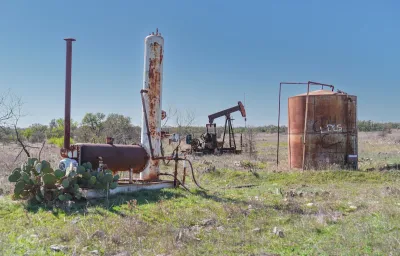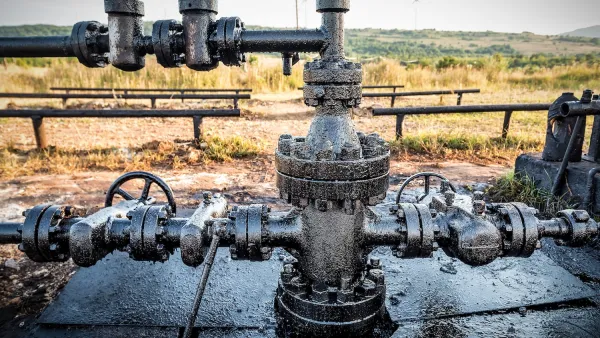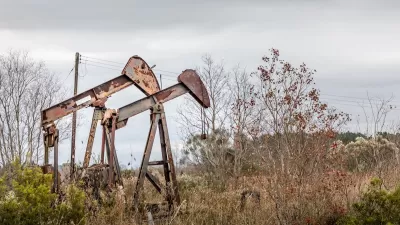Penn State researchers have found that repurposing abandoned oil and gas wells for geothermal-assisted compressed-air energy storage can boost efficiency, reduce environmental risks, and support clean energy and job transitions.

As the world transitions from fossil fuels to renewable energy sources like wind and solar, one of the biggest challenges is finding efficient ways to store energy for times when the sun is not shining or the wind is not blowing. A team of Penn State researchers has proposed an innovative solution: using geothermal heat from abandoned oil and gas wells to improve compressed-air energy storage (CAES) systems. This approach not only enhances storage efficiency by 9.5 percent but also reduces the high startup costs typically associated with CAES projects by reusing existing infrastructure.
The new geothermal-assisted CAES system takes advantage of heat from deep underground rock formations accessed through depleted wells, potentially making the technology more attractive to investors and operators. Heated air holds more pressure, allowing for more energy to be stored and later released to generate electricity during periods of high demand. Numerical modeling confirmed that this setup significantly increases system efficiency. Additionally, this method avoids the need to drill new wells, which can be prohibitively expensive and environmentally disruptive.
Repurposing these wells offers broader benefits beyond energy storage. There are an estimated 3.9 million abandoned oil and gas wells in the U.S., many of which leak methane, a potent greenhouse gas. Using these wells for CAES can help seal and manage them, thereby reducing environmental risks and contributing to climate goals. This strategy could also preserve jobs in legacy fossil fuel communities by reusing infrastructure and involving local workers in the clean energy transition. The research was supported by the U.S. Department of Energy and conducted under Penn State's Repurposing Center for Energy Transition (ReCET).
FULL STORY: Reusing old oil and gas wells may offer green energy storage solution

Maui's Vacation Rental Debate Turns Ugly
Verbal attacks, misinformation campaigns and fistfights plague a high-stakes debate to convert thousands of vacation rentals into long-term housing.

Planetizen Federal Action Tracker
A weekly monitor of how Trump’s orders and actions are impacting planners and planning in America.

In Urban Planning, AI Prompting Could be the New Design Thinking
Creativity has long been key to great urban design. What if we see AI as our new creative partner?

King County Supportive Housing Program Offers Hope for Unhoused Residents
The county is taking a ‘Housing First’ approach that prioritizes getting people into housing, then offering wraparound supportive services.

Researchers Use AI to Get Clearer Picture of US Housing
Analysts are using artificial intelligence to supercharge their research by allowing them to comb through data faster. Though these AI tools can be error prone, they save time and housing researchers are optimistic about the future.

Making Shared Micromobility More Inclusive
Cities and shared mobility system operators can do more to include people with disabilities in planning and operations, per a new report.
Urban Design for Planners 1: Software Tools
This six-course series explores essential urban design concepts using open source software and equips planners with the tools they need to participate fully in the urban design process.
Planning for Universal Design
Learn the tools for implementing Universal Design in planning regulations.
Appalachian Highlands Housing Partners
Gallatin County Department of Planning & Community Development
Heyer Gruel & Associates PA
Mpact (founded as Rail~Volution)
City of Camden Redevelopment Agency
City of Astoria
City of Portland
City of Laramie





























